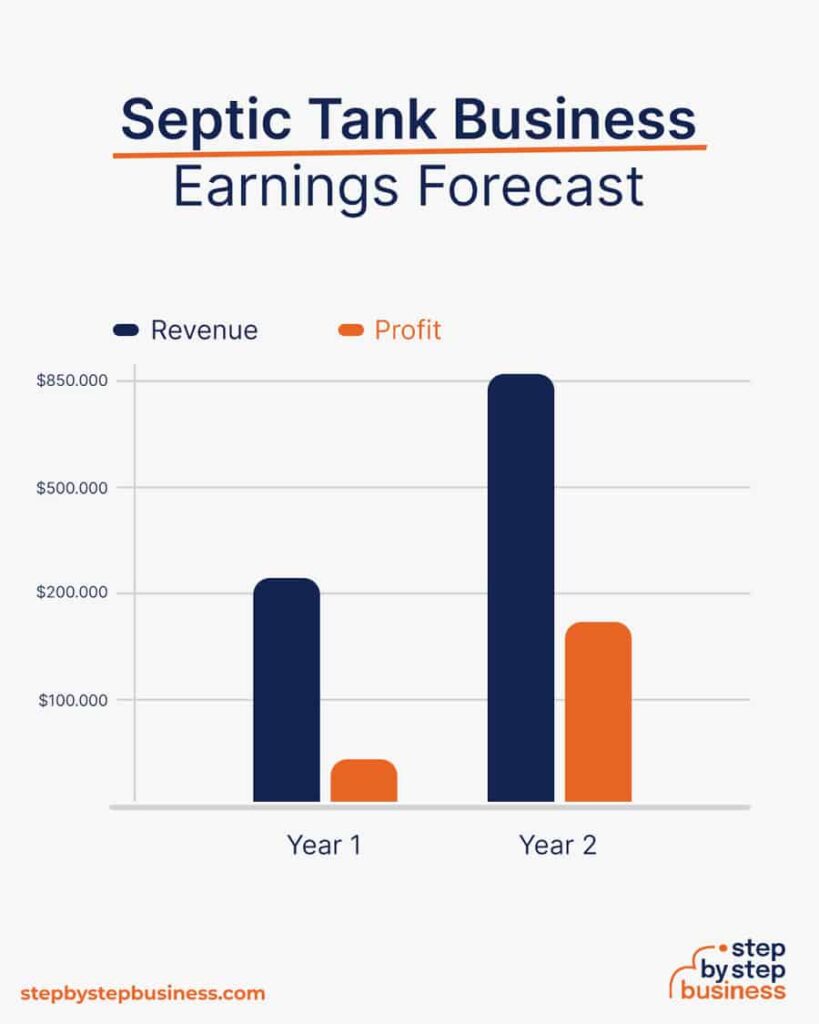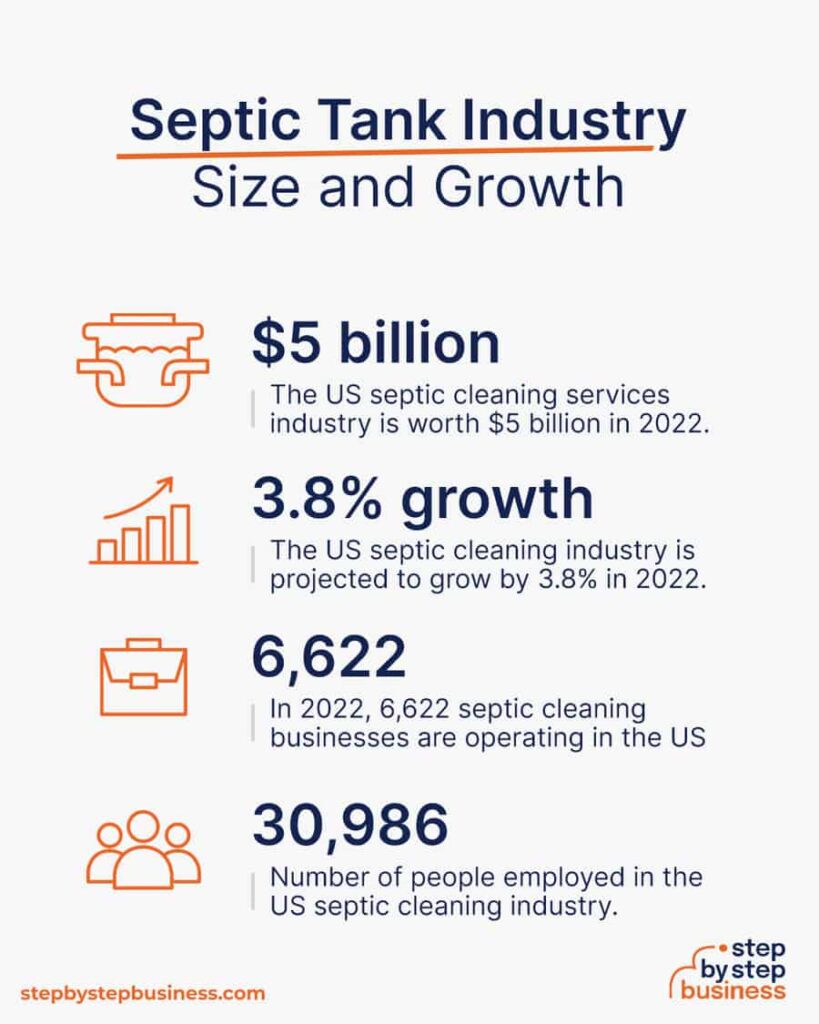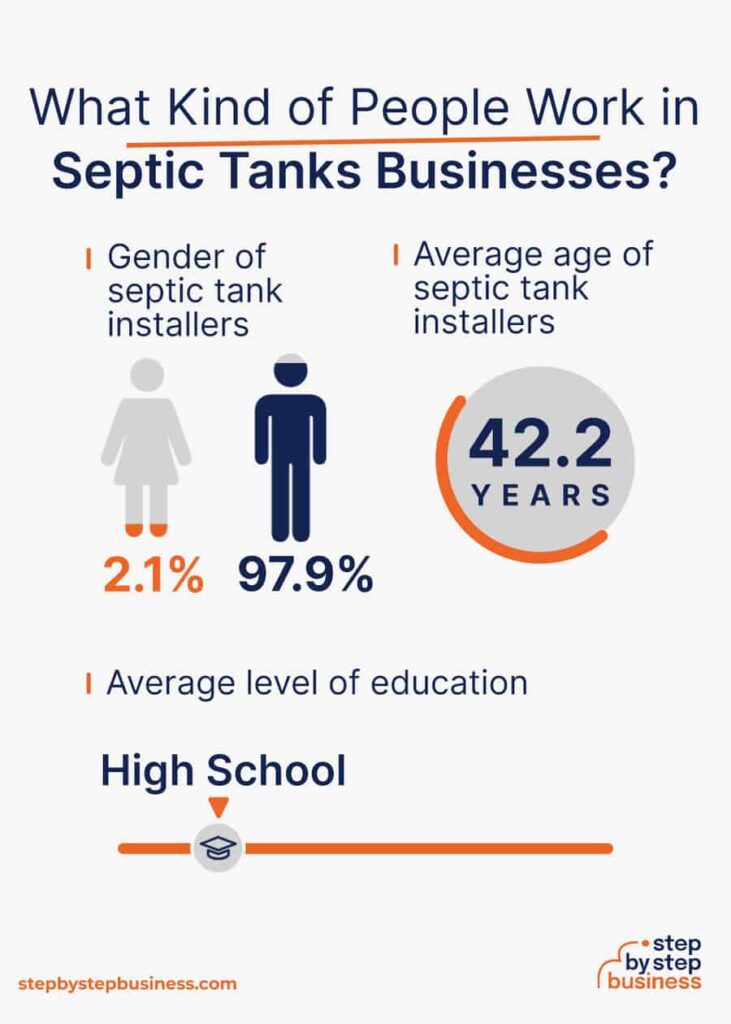Have you ever wondered how much a septic tank cleaner makes? In this article, we will explore the earnings in the septic tank cleaning industry and gain a better understanding of the financial aspect of this profession. From the factors that influence earnings to the average salary range, we will provide you with valuable insights into the income potential of septic tank cleaners. Whether you’re considering a career in this field or simply curious about the financial rewards, join us as we uncover the details of how much a septic tank cleaner can make.

Skills Required for Septic Tank Cleaning
Experience in septic tank cleaning
To be a successful septic tank cleaner, it is essential to have experience in this field. Cleaning septic tanks requires specific knowledge and techniques to effectively and safely remove waste and debris. By gaining experience, you can become familiar with different types of tanks and systems, as well as the best practices for cleaning them. This hands-on experience will also allow you to develop problem-solving skills and the ability to handle unexpected challenges that may arise during the cleaning process.
Knowledge of sanitation regulations
Operating within the guidelines and regulations established for septic tank cleaning is crucial to ensure public health and safety. Being knowledgeable about sanitation regulations and compliance requirements will help you to maintain high-quality standards in your work. This includes understanding proper disposal methods for waste materials, adhering to environmental regulations, and following safety protocols. Staying updated on any changes in sanitation regulations is vital to providing reliable and professional septic tank cleaning services.
Ability to operate equipment
As a septic tank cleaner, you will need to be proficient in operating various types of equipment. This may include pump trucks, vacuum systems, high-pressure water jets, and specialized tools for cleaning and maintaining septic tanks. Having the skills to operate this equipment safely and effectively is essential to complete the cleaning process efficiently and thoroughly. It is crucial to stay updated on new technologies and equipment advancements to ensure you are providing the best possible service to your customers.
Factors Affecting Septic Tank Cleaner Earnings
Location
The location where you work as a septic tank cleaner can significantly impact your earning potential. Areas with a higher demand for these services or a higher cost of living may offer higher wages. Metropolitan areas or regions with a high concentration of septic systems are more likely to provide a larger customer base and, consequently, more opportunities for work. On the other hand, rural areas with fewer septic systems may offer lower wages due to less demand.
Years of experience
Experience plays a vital role in determining the earning potential of septic tank cleaners. As you gain more experience in the industry, you acquire a deeper understanding of the work, improve your skills, and become more efficient in completing tasks. This increased expertise and proficiency may lead to higher wages or even opportunities for advancement in the field. Employers are often willing to pay more to cleaners who have a proven track record of quality work and reliability.
Type of employment
The type of employment you have as a septic tank cleaner can also impact your earnings. Some cleaners work for established septic tank cleaning companies, while others operate independently as self-employed individuals. Working for a company may provide benefits such as a regular salary, health insurance, and retirement plans. On the other hand, being self-employed may offer more flexibility and higher earning potential, as you can set your rates and negotiate directly with clients.
Average Salary of Septic Tank Cleaners
National average salary
The national average salary for septic tank cleaners varies depending on several factors, including experience, location, and the size of the company. According to recent data, the average annual salary for septic tank cleaners in the United States is around $38,000. However, it is important to note that this figure can significantly fluctuate based on the factors mentioned above.
Salary by state
When considering septic tank cleaner salaries, it is essential to take into account the differences that exist between states. Wages may vary due to disparities in the cost of living, demand for services, and local economy. For example, septic tank cleaners in states like California, New York, and Massachusetts tend to earn higher salaries compared to those in states with lower costs of living, such as Arkansas or Mississippi.
Salary by years of experience
As mentioned earlier, the number of years of experience can impact a septic tank cleaner’s salary. Typically, those with less experience may start at a lower salary level, but as they gain expertise and demonstrate their value, they can expect their earnings to increase. It’s not uncommon for highly experienced septic tank cleaners to earn significantly more than their less-experienced counterparts, as their skills and reputation in the industry become more established.
Salary Comparison with Other Cleaning Jobs
Comparison with sewage treatment plant operators
Septic tank cleaners and sewage treatment plant operators have different job responsibilities, but there can be some salary similarities between the two positions. On average, the earnings of sewage treatment plant operators tend to be higher than those of septic tank cleaners. This is primarily due to the additional specialized knowledge and training required for operating larger wastewater treatment facilities. However, it is worth noting that individual circumstances and location can impact the salary comparison between these roles.
Comparison with house cleaners
When comparing septic tank cleaner salaries with those of house cleaners, there can be significant differences. House cleaners typically earn lower wages because the cleaning tasks and responsibilities associated with residential cleaning are generally less specialized and require fewer specific skills. Septic tank cleaning, on the other hand, involves working with potentially hazardous materials and requires a higher level of expertise, which often translates into higher pay.
Job Outlook for Septic Tank Cleaners
Projected growth in the industry
The job outlook for septic tank cleaners is expected to be positive in the coming years. As the population continues to grow, so does the need for proper sanitation and wastewater management. This increased demand for septic tank maintenance and cleaning services is likely to create more job opportunities in the industry. Additionally, stricter regulations surrounding septic system maintenance and inspection may further drive the need for septic tank cleaners.
Competition for job opportunities
While there is projected growth in the industry, competition for septic tank cleaning job opportunities can still be significant, especially in areas with an abundance of septic systems. It is essential to stand out from the competition by demonstrating your skills, experience, and commitment to providing high-quality service. Building relationships with local plumbing companies and other professionals in related fields can also help you secure more job opportunities through referrals.
Benefits and Perks of Being a Septic Tank Cleaner
Health insurance
Some septic tank cleaning companies offer health insurance benefits to their employees. This can provide valuable coverage for medical expenses, including doctor’s visits, medications, and hospitalization. Having health insurance not only ensures that you have access to necessary healthcare services, but it also provides peace of mind knowing that you are protected in case of unexpected medical events.
Paid leave
Paid leave, such as vacation days or sick leave, is another potential benefit that septic tank cleaners can enjoy. These benefits allow you to take time off from work without experiencing a loss of income. Taking regular vacations and having the opportunity to recover from illness or injury can contribute to your overall well-being, reducing stress and increasing job satisfaction.
Retirement plans
Some septic tank cleaning companies may offer retirement plans, such as 401(k) or pension plans, to their employees. These retirement benefits allow you to set aside a portion of your earnings for your future, ensuring financial security during your retirement years. Planning for retirement early in your career can be a wise decision, as it allows you to save over time and take advantage of any employer matching contributions.

Educational Requirements for Septic Tank Cleaners
High school diploma or GED
In most cases, a high school diploma or a General Education Development (GED) certificate is the minimum educational requirement for septic tank cleaners. While formal education beyond high school may not be mandatory, having a solid foundation in basic math, reading, and communication skills is beneficial in understanding and following safety protocols, interpreting equipment manuals, and effectively communicating with clients.
On-the-job training
The majority of septic tank cleaners receive training while on the job. This hands-on training allows new cleaners to learn about different types of septic systems, understand equipment operation and maintenance, and become familiar with proper safety procedures. On-the-job training often involves shadowing experienced professionals, who can provide guidance and mentorship to help develop the necessary skills and knowledge required for this industry.
Certifications and Licenses for Septic Tank Cleaners
Septic Tank Cleaning Certification
Obtaining a septic tank cleaning certification can enhance your credibility and demonstrate your proficiency in the field. This certification typically involves completing a training program that covers topics such as septic system maintenance, proper waste disposal, and equipment operation. Attaining this certification may also be a requirement in some states or regions to ensure that cleaners adhere to industry standards and best practices.
Commercial Driver’s License (CDL)
Given the nature of the job, septic tank cleaners often need to operate specialized vehicles, such as pump trucks, which may require a Commercial Driver’s License (CDL). A CDL is a legal requirement for driving certain types of vehicles, and obtaining one involves passing both written and practical exams. Having a CDL not only allows you to legally operate these vehicles but also demonstrates your ability to handle them safely on the road.

Job Satisfaction in the Septic Tank Cleaning Industry
Work environment
The work environment in the septic tank cleaning industry can vary, ranging from residential properties to commercial establishments. While the nature of the job can be physically demanding and occasionally unpleasant due to working with waste materials, many cleaners find satisfaction in contributing to public health and environmental protection. Being able to provide a vital service that helps maintain the functionality and longevity of septic systems can bring a sense of purpose and accomplishment.
Sense of accomplishment
Providing septic tank cleaning services often involves addressing and resolving complex issues and challenges. Successfully cleaning a septic tank and restoring its functionality can give septic tank cleaners a strong sense of accomplishment. Knowing that you have the skills and expertise to tackle difficult situations and make a positive impact on the lives of your clients can be highly rewarding.
Ways to Increase Earnings as a Septic Tank Cleaner
Specializing in additional services
Expanding your skill set and offering additional services can open up new avenues for increasing your earnings as a septic tank cleaner. Some cleaners specialize in other related areas, such as septic system installation, repair, or inspection. By becoming proficient in these additional services, you can attract a wider range of clients and charge higher rates for your expertise.
Becoming a supervisor or manager
Advancing to a supervisory or managerial role within a septic tank cleaning company can lead to higher earnings. As a supervisor or manager, you may have increased responsibilities, such as overseeing teams of cleaners, coordinating schedules, and managing client accounts. Additionally, these positions often come with higher salaries and may offer opportunities for bonuses or profit-sharing based on the company’s performance.
In conclusion, septic tank cleaning can be a fulfilling and financially rewarding career choice for those who possess the necessary skills, knowledge, and dedication. By continuously improving your expertise, staying informed about industry regulations, and seeking opportunities for career growth, you can maximize your earning potential and job satisfaction in the septic tank cleaning industry.


